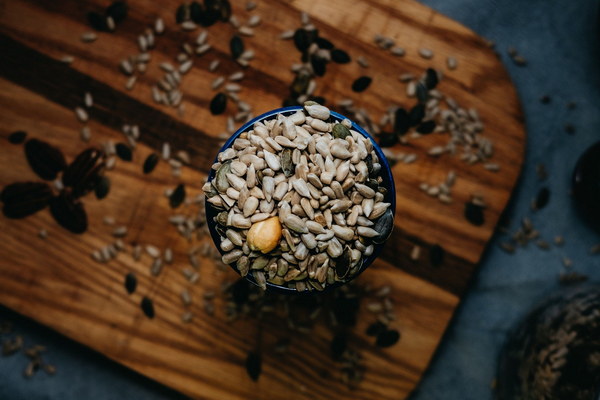Harmonizing Health Exploring Traditional Chinese Medicine's Approach to Cancer Wellness
In the realm of cancer treatment and wellness, traditional Chinese medicine (TCM) offers a unique perspective that emphasizes the harmonization of the body, mind, and spirit. This holistic approach to healthcare has been gaining traction in the West, and it is now time to delve into how TCM can contribute to the fight against cancer.
Cancer, a complex disease characterized by the uncontrolled growth of abnormal cells, poses a significant challenge to both conventional and complementary therapies. TCM, with its rich history and time-tested practices, offers a complementary approach that can support patients during their cancer journey.
One of the fundamental principles of TCM is the concept of Yin and Yang, which represents the balance of opposing forces in the body. When this balance is disrupted, illness, including cancer, can occur. TCM aims to restore this balance by addressing the root cause of the problem, rather than merely treating the symptoms.
Herbal medicine plays a crucial role in TCM's approach to cancer wellness. Chinese herbal formulas have been used for centuries to treat various ailments, and many have shown promising results in cancer management. For example, the herb turmeric, known for its anti-inflammatory properties, has been found to inhibit the growth of cancer cells. Additionally, other herbs such as ginseng, astragalus, and reishi mushrooms have been shown to boost the immune system, enhance energy levels, and reduce fatigue in cancer patients.
Acupuncture, another TCM modality, involves inserting fine needles into specific points on the body to stimulate the flow of Qi (vital energy). This technique has been found to alleviate pain, reduce nausea and vomiting, and improve sleep quality in cancer patients. Furthermore, acupuncture can enhance the body's ability to cope with stress and anxiety, which are common side effects of cancer treatment.
Moxibustion, a form of heat therapy, involves burning moxa (a substance made from dried mugwort) near the skin's surface at specific acupuncture points. This method has been shown to improve blood flow and enhance immune function, potentially benefiting cancer patients.
In addition to herbal medicine and acupuncture, TCM emphasizes the importance of lifestyle and diet in cancer prevention and treatment. A balanced diet rich in fruits, vegetables, and whole grains provides essential nutrients and antioxidants that can help protect against cancer. Regular exercise, such as tai chi or qigong, can improve physical and mental well-being, enhance immune function, and reduce stress levels.

Furthermore, TCM recognizes the significance of emotional and spiritual well-being in cancer management. Techniques such as meditation, yoga, and mindfulness can help patients cope with the emotional turmoil that comes with a cancer diagnosis. By fostering a sense of inner peace and resilience, these practices can contribute to a more holistic approach to cancer care.
While TCM cannot cure cancer on its own, it can offer valuable support during and after conventional treatments. Integrating TCM with conventional medicine can lead to improved quality of life, reduced side effects, and potentially enhanced survival rates.
In conclusion, traditional Chinese medicine's approach to cancer wellness provides a promising alternative and complementary treatment option for patients seeking a holistic approach to their healthcare. By addressing the root causes of illness, enhancing immune function, and promoting overall well-being, TCM can contribute to a more comprehensive cancer treatment plan. As research continues to explore the potential benefits of TCM in cancer care, it is clear that this ancient practice holds valuable insights for the future of cancer treatment and wellness.









